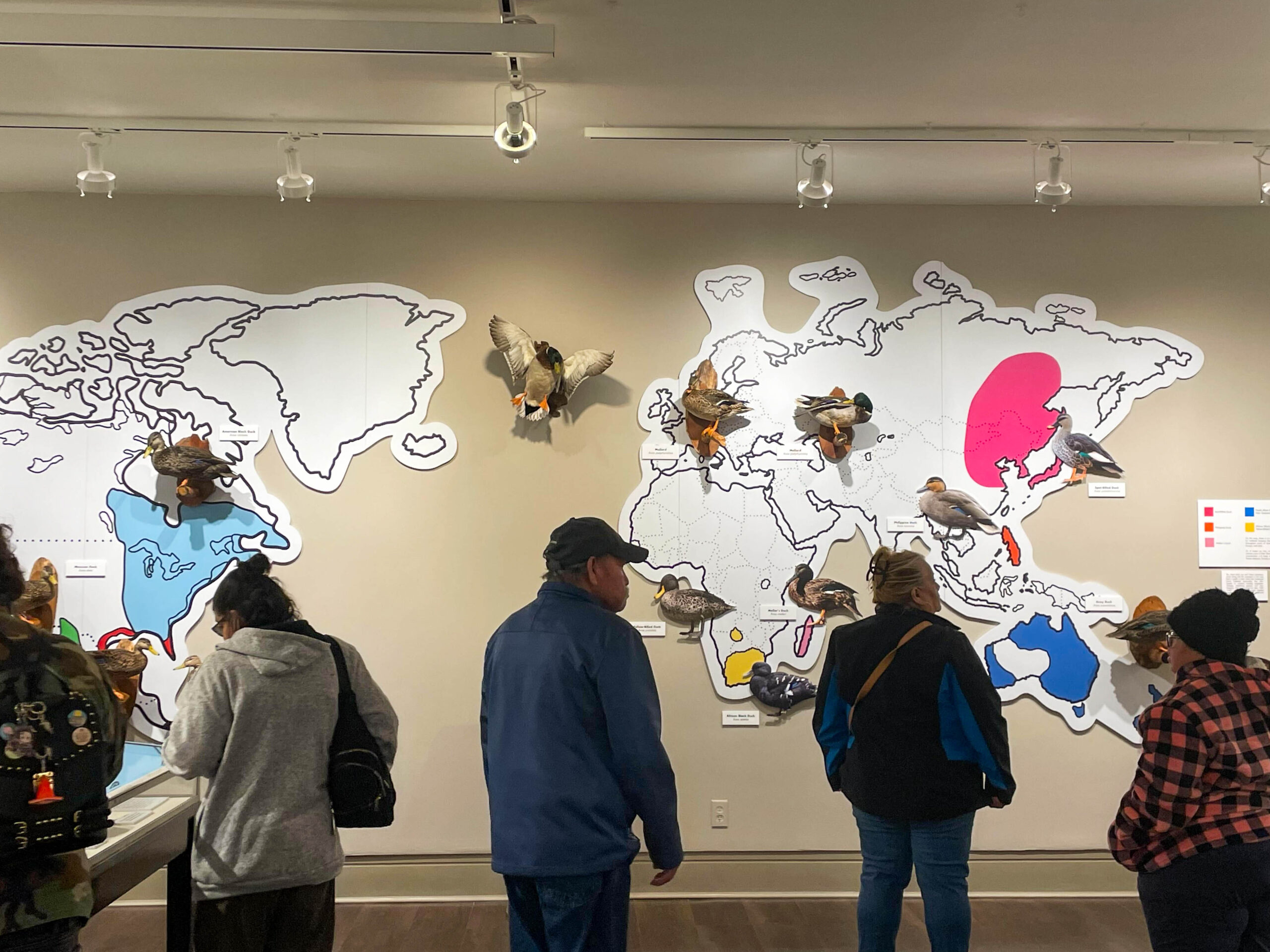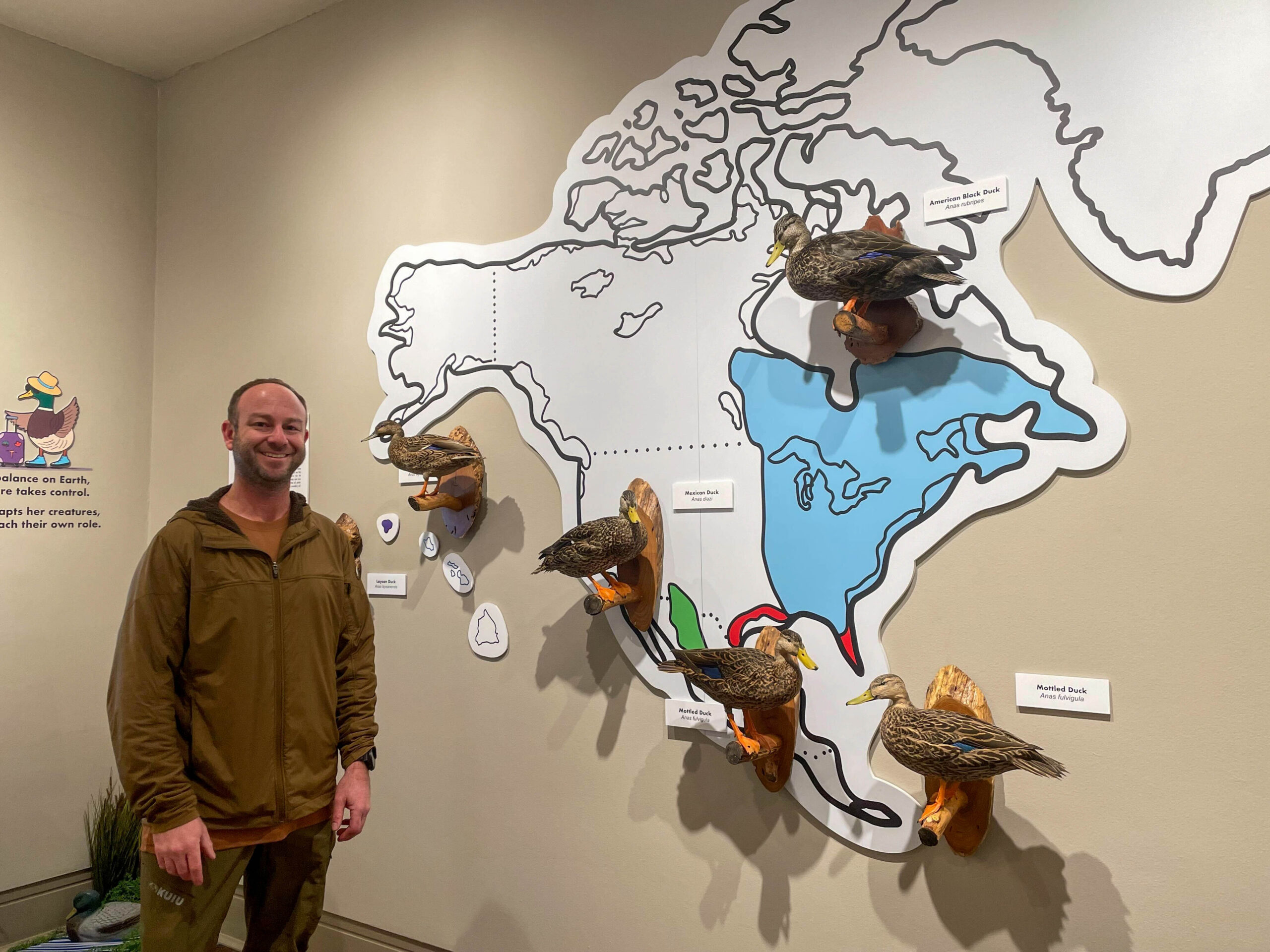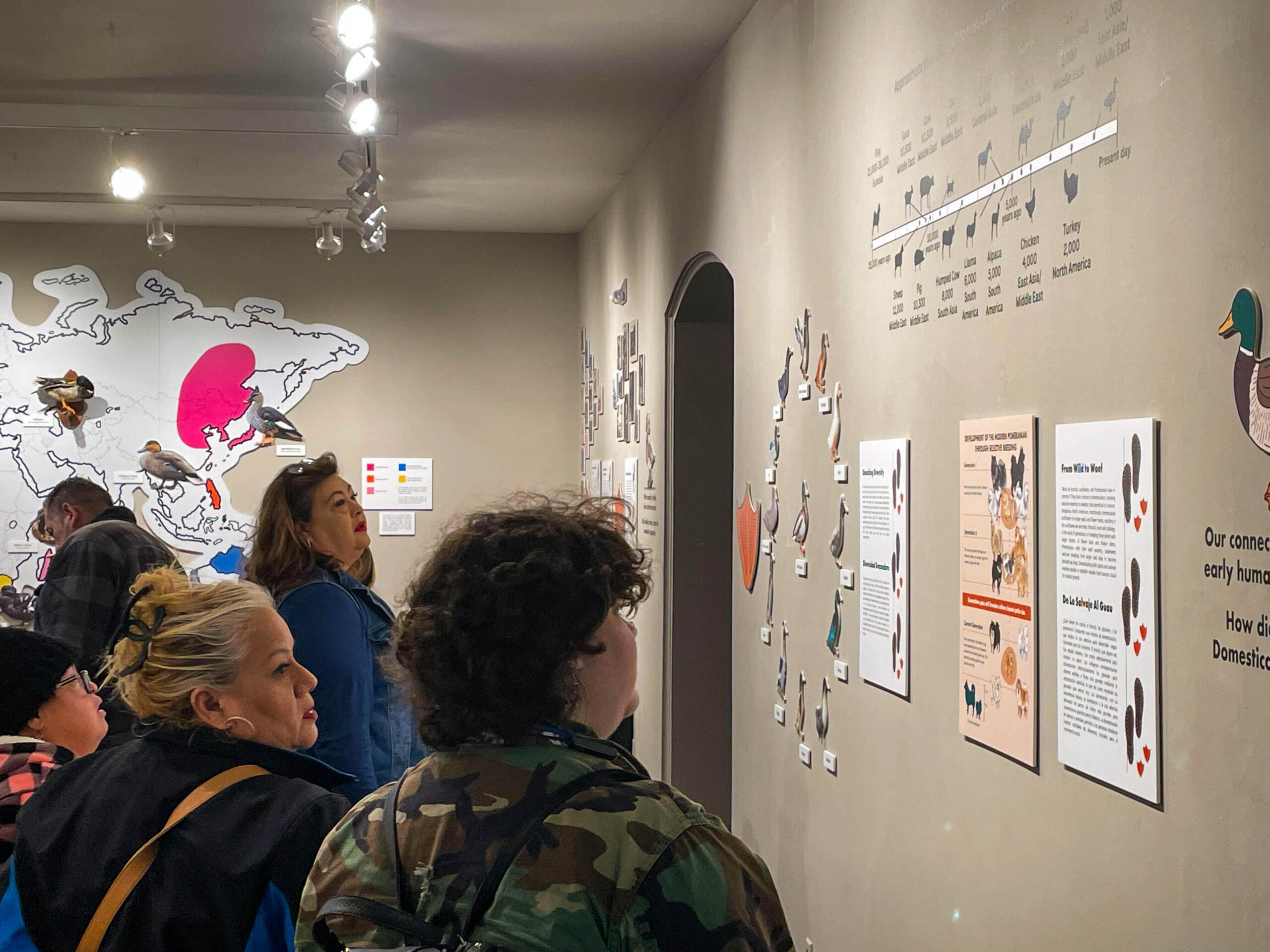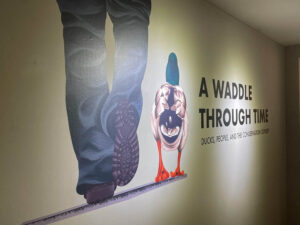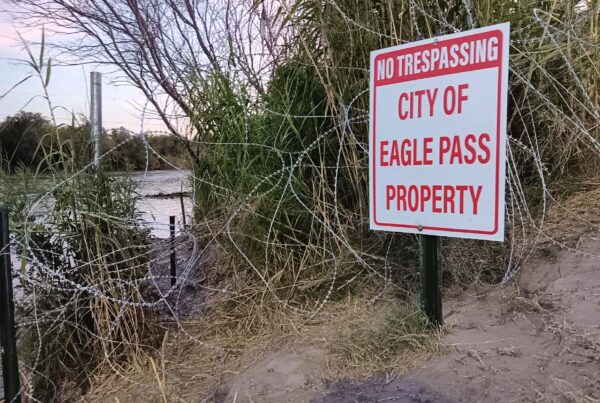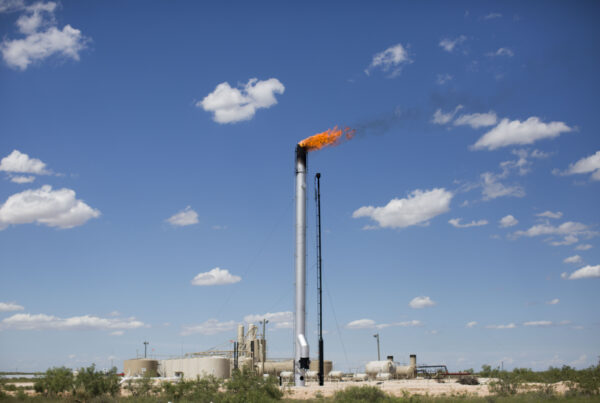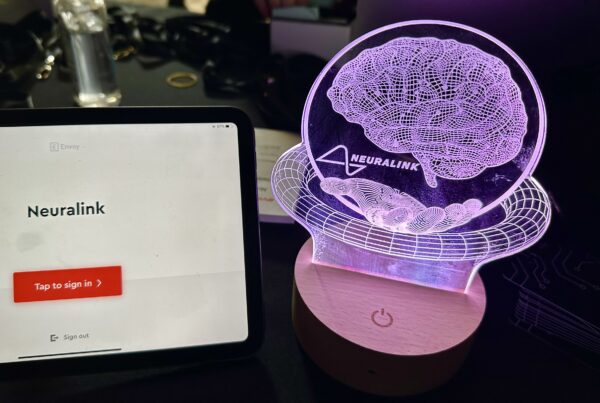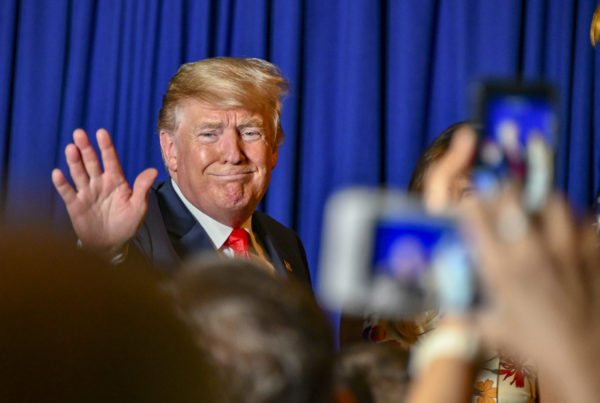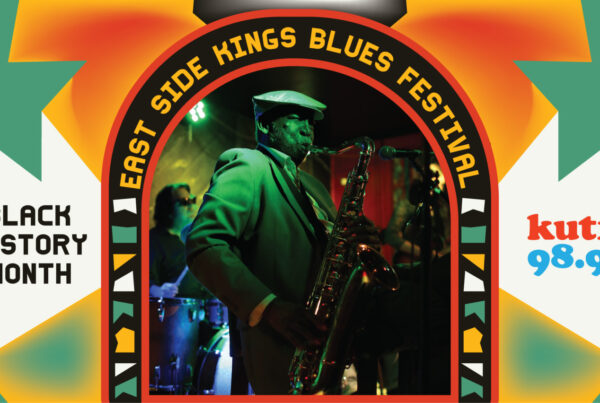What do we think of ducks? Most of us probably don’t think much about them at all, but we may enjoy a video of a mama duck taking her babies across the road or watching them at a local park.
History has shown that ducks have waddled alongside humanity for centuries, shaping and being shaped by our ever-changing world. A new exhibit at the University of Texas at El Paso entitled “A Waddle Through Time: Ducks, People, and the Conservation Odyssey” explores that history.
Dr. Philip Lavretsky is a professor at UTEP who researches evolution, adaptation and conservation of ducks. He spoke with the Standard about the exhibit and the historic relationship between humans and ducks. Listen to the interview above or read the transcript below.
This transcript has been edited lightly for clarity:
Texas Standard: How long have you been studying and learning about ducks?
Philip Lavretsky: Probably since I was 10-years-old.
I’ve had a fascination with waterfowl for a long time, but, scientifically studying, probably since 2010 when I started my PhD and continued to do shows when I started my program running a wildlife genetics lab here at the University of Texas – El Paso.


